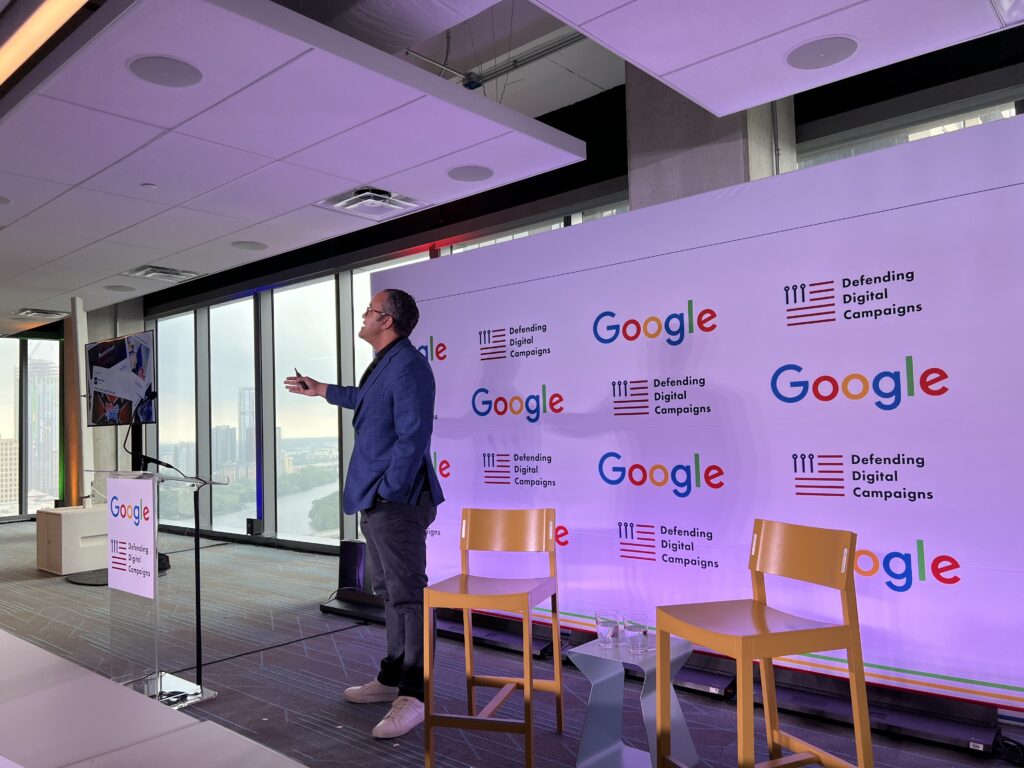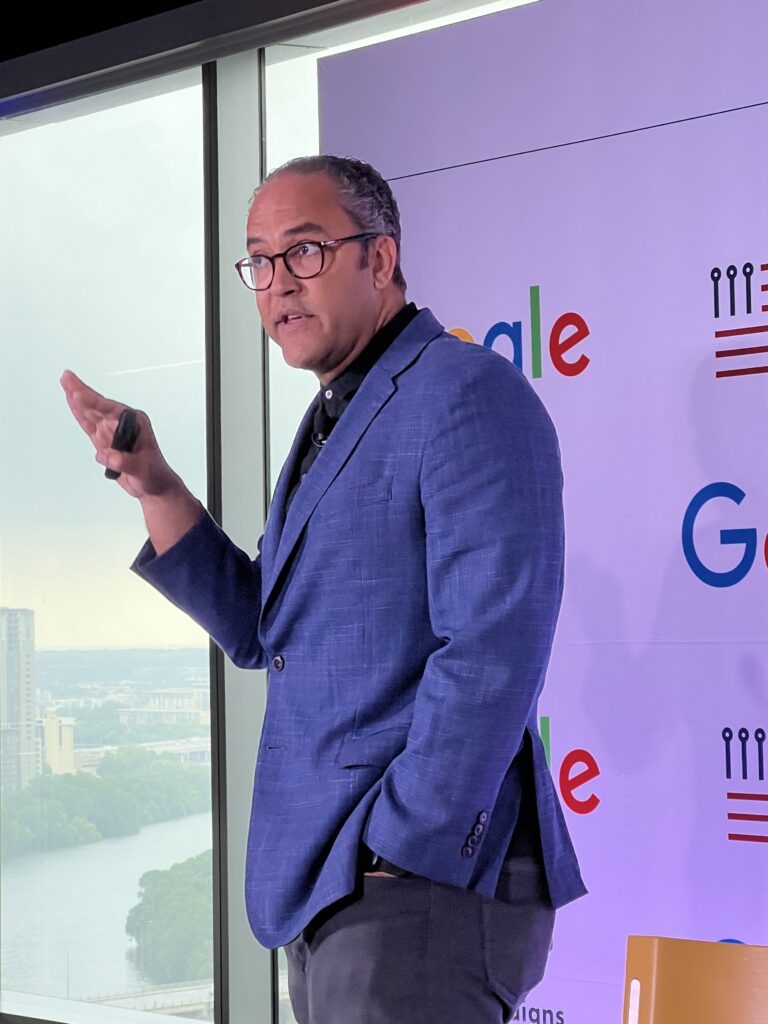Political campaigns increasingly rely on technology but have small teams, creating cybersecurity vulnerabilities that cybercriminals can exploit.
Will Hurd, a former Republican congressman from San Antonio, said election misinformation is a real threat to American Democracy.
Hurd, a former 2024 presidential candidate, cybersecurity expert, and former undercover officer in the CIA, spoke at a Thursday half-day summit at Google’s downtown office in Austin. Defending Digital Campaigns, a Google Partner, put on the event. The organization provides political parties and campaigns with knowledge, products, and services to protect themselves from cyber threats and attacks. More than 100 people attended the event, including leading experts in politics and technology.
Hurd said the future of cybersecurity will be a battle between good AI versus bad AI. New tools like Generative AI easily create text, images, and videos with large language models, known as LLMs, like OpenAI’s ChatGPT, Google’s Gemini, Athropic’s Claude.Ai, and others.
Hurd said AI can be used for good, to get the correct information out there, and to facilitate helpful discourse. It’s a tool; use it to promote good conversations, he said.
“That’s the only way we’re going to keep this little experiment called Democracy safe,” Hurd said. “The bad guys aren’t necessarily smarter than you. Truth is on your side. Use it. Harness it.”

Hackers have created havoc with misinformation in past election campaigns, and this year, with Generative AI, the situation will only worsen. In February 2024, the Federal Communications Commission issued a cease-and-desist letter against Texas-based Lingo Telecomm, which is alleged to have originated robocall traffic using AI-generated voice technology to impersonate President Joe Biden and tell voters not to vote in the New Hampshire primary election.
Hurd said misinformation first began circulating through social media during the 2016 Presidential elections, and Blactivist and Southern Pride were some of the originators of posting misinformation campaigns.
“These were two organizations that the Russian Internet Research Agency built and ran social media campaigns,” Hurd said. Those campaigns reached hundreds of thousands of people.
“It’s not just the Russians we have to worry about,” Hurd said.
One of China’s latest campaigns is targeting Texas and spreading misinformation across social media about political unrest in the state stemming from immigration and border disputes with the Federal government, Hurd said. The online chatter is about an impending civil war. The U.S. State Department released its first report in September 2023 on the People’s Republic of China’s information manipulation.
“Why are they doing that?” Hurd said. “It’s to erode trust in our institutions. It’s not about influencing the actual vote count. It’s not about ten votes here or there. It’s to erode trust in our institutions because when we are battling each other, we’re not battling them.”
Hurd said that the U.S. has known for years that Chinese hackers have been in some of the U.S.’s critical infrastructure, which should be a considerable concern.
Hurd said the world is already experiencing an infodemic, with information overload from the Internet and social media, and AI will make it even worse.
Information that AI allows us to release into the ether will lead people to do one of three things: they are going to revert to things they already know and people they already trust or straight out reject even if the information is accurate, or they’re going to get duped, Hurd said.
Protecting the democracy starts with protecting yourself, Hurd said.
“Don’t let the bad guys into your systems,” he said.
It’s simple, Hurd said. Hurd said don’t click on phishing messages like fake receipts or messages about other stuff from people you don’t know. He said that is a real tech scam, and 90 percent of cyber hacks start with a phishing expedition. It’s OK to ignore it, he said.
Hurd said that half of all current attacks could have been prevented with updated software.
“Update your freakin’ software, y’all,” Hurd said.
If people do these two things, they protect themselves, their campaigns, their candidates, and their principles, and “you’re preventing the Chinese, the Russians, and the Iranians from gaining access to information they could potentially use in the future,” he said.
And be careful of what you click on while browsing the Internet, Hurd said. There are a lot of phishing ads that are not real ads on the Internet, he said.

